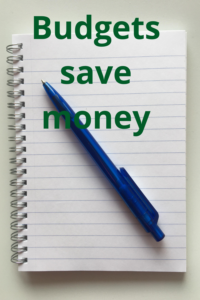A Strategy To Save Money
Most Americans save little to no money. Does that surprise you? It’s 65%. It amazes me, and you must wonder at such a large percentage. Millions of blog posts, television programs, and books (try your library) are dedicated to giving us everything you need to know about spending less to save money. With all that free information, what keeps us from saving?
If you ask me what’s lacking, I’d say most non-savers, and those who save too little may desire to save but lack a good saving strategy. We all know how to spend less: Comparison shopping, buying things on sale, using coupons, and applying discounts are almost second nature. Unfortunately, we never seem to keep the money we save by doing those things. I want to present a strategy to save money. that allows you to save (accumulate) the money we “save.”
A saving strategy is essential to accumulating money. Commit to spending less, pay yourself first, and set aside funds for the future. Eliminate and avoid debt. You also need to meet current obligations. A spending journal and budget will help you implement your strategy.
A Strategy To Save Money
Why Do You Want To Save Money
Why do you want to save money? It’s important to know your “Why?”. Your why gives you a purpose for saving. Maybe you want to buy a car, continue your education, take a nice vacation… When you have a why, you start building a relationship with the money you’re saving, and that helps you stay committed. Your “Why?” gives you a goal, a reason.
Set Financial Goals
Financial goals are important. Without a goal, it’s difficult to achieve anything financial or otherwise. Without a goal, there’s no purpose for doing much of anything, saving money is no exception. Most people want their money to do something for them. The idea of just socking it away isn’t very inspiring.
If you don’t have any financial goals, start by setting achievable ones. One of my first financial goals (many years ago) was to save 1% of my gross pay each payday for a year; I wanted to start an emergency fund. It amounted to about a $5 deposit to my savings account twice a month—$10 a month, $120 that year. When I think about it now, it sure wasn’t much of a goal, but at the time, it was reasonable, and I did achieve it. The important thing is that saving became a habit and led to setting more ambitious goals.
Your goal could be anything. Let’s say it’s to save $3,000 in twelve months. And your why? To take a vacation, or… you name it. (If this is your first purposeful saving endeavor, I’d highly suggest making your “Why?” the start of an emergency fund; it can be a lifesaver.)
Our whys may differ, but each of us has reasons to save. Let’s look at some actions we can take to increase our success in the endeavor.
Start Saving Money
If you’re reading this, I assume you’re interested in saving money. (Maybe you’ve tried at least off and on?) If it’s been difficult for you to save anything or if you do save, but it’s never enough, keep reading. I’ll present a strategy to save money that’s good for building a habit of saving, then I’ll show you how to save more.
So, here’s my simple strategy for saving:
- Find a “Why?”
- Set a goal and make it small to start with—commit to saving a set amount of money every payday for a predetermined number of paydays
- Keep (save) that money in a safe place
Successful savers are habitual savers. Interest in becoming a successful saver gives you a good “Why?” for employing this strategy. After a while, saving will become a habit, but it will take some time—maybe a few weeks or closer to a year. When saving becomes an automatic response upon receiving your paycheck, you’ve made it a habit. Also, when I say save a small amount, I mean put away just a few dollars every payday and live off the rest of your income. And, do put the money you save in a secure place, like a savings account; an envelope in your desk or chest of drawers is too accessible.
Note: In the beginning that small amount you save may seem disappointing, but the amount can change once you’re in the habit of saving, and you’ll soon see how to save more. I know a couple who began by saving $3 dollars a week and now (some years later) save about $300 a week. You’ll be surprised how much money you can save once you’re in the habit of saving.
One last thing: I suggest this strategy to initiate the habit of saving. You really don’t have to change much once you’re there. Just set appropriate goals and you can repurpose the funds you save on this first endeavor; find a new “Why?” and set new goals. Perhaps you’ll decide to use the money towards a vacation, or a car, or to establish an emergency fund, or… and keep on saving. Actually, most of our “Whys?” find us, so we need to do is find ways to save more money.
How to save more money
Budget
If you’re already in the habit of saving money but feel the need to take it to the next level, this is where you jump in. This is more on how to save money.
It’s time to make a budget. Think of a budget as a map of where you want your money to go. I’ve written an article on how to make a budget. It gives you what you need to know about developing one that works.
Of course, you can’t make a budget if you no idea where your money is going. So, the first step in making a budget is to keep a spending journal.
A Spending Journal
Most people can’t tell you what they had for breakfast yesterday. They also aren’t likely to recall where or how much money they spent over the course of last week. If you don’t know what you spend your money on, you can’t make a budget. The solution is a spending journal. Keeping track of every expenditure is important.
Carry a small notebook with you everywhere you go. When you spend money, made a note of it—how much, on what, where, and why. (Why you spend is as important as why you save.) In order to make a budget, when you spend money, you need to record in your spending journal what type of expenditure it was—food, fuel, clothes, entertainment, insurance, etc. Expenditures of the same type will be combined to make budgeted categories. (I urge you to take a look the article I mentioned above on making a budget.)
Make Your Budget as Realistic as Possible
Don’t worry about making the perfect budget, and don’t worry too much about mistakes. Whenever you make or revise a budget, it takes a few weeks, maybe a couple of months, to tweak your numbers.
Successful savers budget for two reasons: First, you need to find waste and over expenditures so you can redirect that money to your savings. You may find only small amounts, or it might be significant. The important thing is that you’re saving money and looking for more to save. The other reason is to find a way to save that money and have a life at the same time. (To do this, you’ll need to pay yourself first.)
Pay Yourself First
Your budget should do more than have you starting from a financial ground zero every payday. It should include a way to save money, a way to provide a buffer against both expected and unexpected future expenses. My recommendation is to set aside an amount you’ve chosen to save and live on the remainder or your pay. You can save money for specific needs or as funds for dealing with unanticipated events—emergencies. By doing this you are in essence paying yourself first. The money helps protect you from unplanned, sudden draws on your finances. It’s kind of ironic that you may have to start small when you pay yourself first (increasing the amount as you find ways to save) while paying yourself first is a major key to saving more money.
Small Amounts Count
As I said earlier, combining small savings can make an impact. I’ll give you an example of what I mean: I love mac and cheese. I used to buy boxes of the name brand. Now I buy generic. The generic tastes just as good as the name brand but costs a little less. (Shopping for a taste/price advantage is an illustration of comparison shopping. You can comparison shop for a wide variety of goods and services.)
Comparison Shopping
Annually, I save about $20 buying generic brand of mac and cheese. Twenty dollars a year certainly isn’t a lot of money, but combined with the money saved by comparison shopping for other items along with buying on sale, couponing, etc., it adds up. You just have to be conscientious about conserving your funds.
You and Your Money
Earlier in this article I said your whys put you in a relationship with your money. It’s sort of a partnership that requires you to do your part by saving money. In return your savings will contribute to your future enjoyment of life and living. Of course, that depends on how much you save. I’ll finish this section with a few more examples of where to find small savings, then follow up with a couple of issues that can provide some major cash for saving.
Be Deliberate
- Turn off lights in unused rooms—to save on utility fees
- Ditto on temperature control—learn to tolerate it a bit cooler in winter and warmer in summer
- Walk when you can—save on auto fuel and maintenance costs.
- Do you really need this thing you’re thinking of buying—will it rob your savings
- Treat treats as treats not as a lifestyle necessity—I drink fewer lattes than I used to…a lot fewer
Do these suggestions give you some ideas? You probably know some ways you can cut back on spending and add to your savings.
Now, let’s look at a couple of ways to really increase your saving potential: Get out of debt and make more money.
Debt vs. Saving Money
If you’re in debt, the money you now pay in interest could be saved and used to help you reach your financial goals and attain your dreams.
Also, think about this: If you’re in debt, with no cash, and you have an unforeseen bill, how will you pay it? In most cases a person needs to take on more debt. This is known as the debt cycle, and it can be a constantly recurring event. The debt cycle needs to be broken. Having cash to pay is the only way to break the debt cycle; saving is the means to having the cash. Becoming debt free and remaining so is a good “Why?” for saving.
The idea of becoming debt free in order to save brings up the issue about where to find extra money to pay debt off early. Really, you don’t even need to be in debt for the need to find extra money to be an issue. It’s also relevant to those who live paycheck to paycheck. Earning more money may be the only solution.
Earn More Money
Once you have your budget completed, it may become obvious you don’t earn enough money to save anything or that you need to increase your rate of saving. Most people finding themselves in this situation consider getting a better job or a part-time job, maybe starting a side gig.
About That Extra Money
It’s not unusual for people to seek ways to earn extra money either to help pay off bills or to have money for saving. Unfortunately, they sometimes forget their goal. They get caught up in the buying power of the new flow of cash coming in and they squander the money instead of using it to become debt free or saving it. Eventually, they may to try to square it with their whys (and what a disappointment that turns out to be). If you’re going to invest the time and energy to earn extra money, keep in mind that your work is meant to implement your strategy for saving.
Conclusion
This is a strategy to save money, it’s simple and easy to do. Start with small goals and work your way up to more challenging goals and more money.





